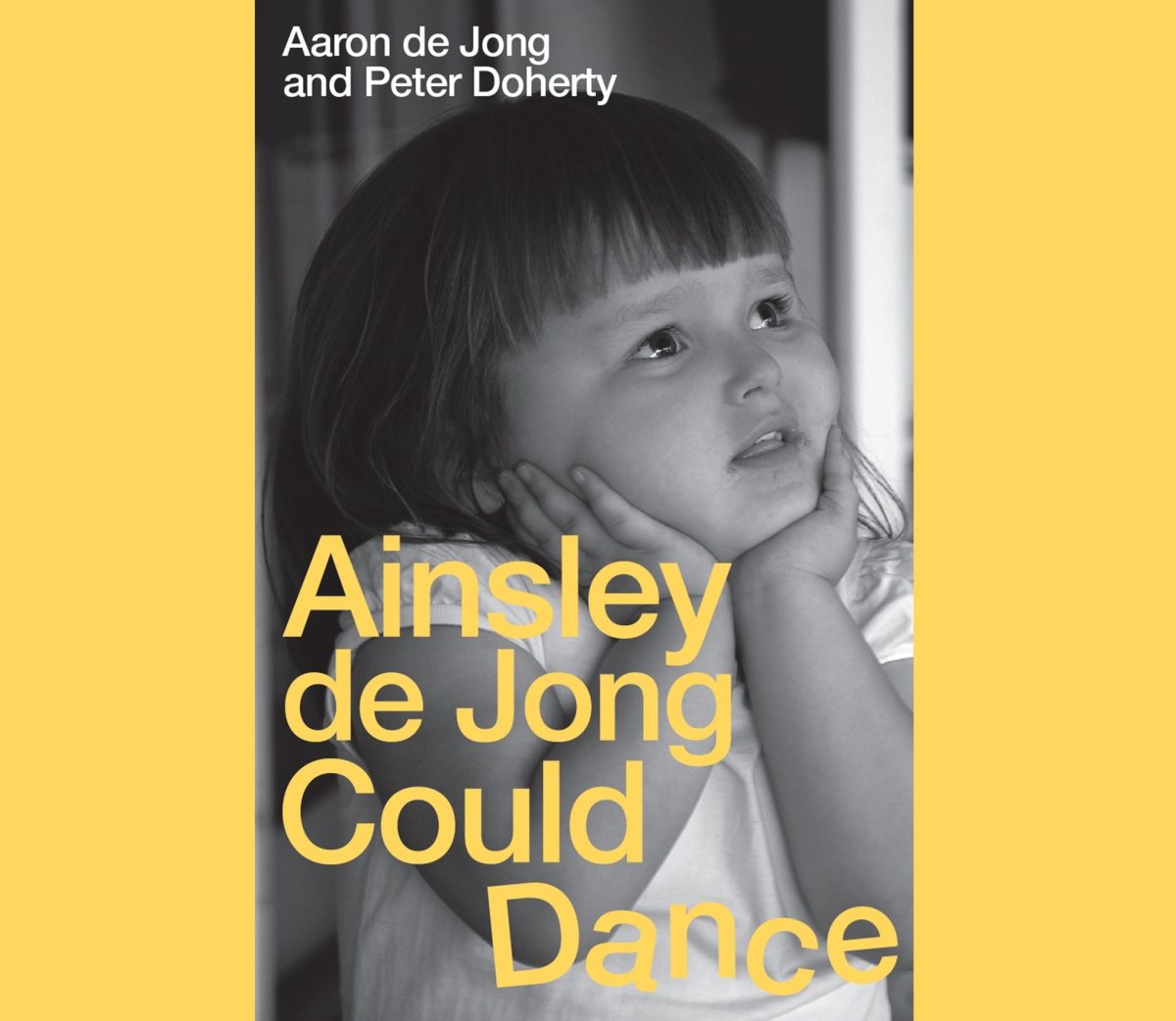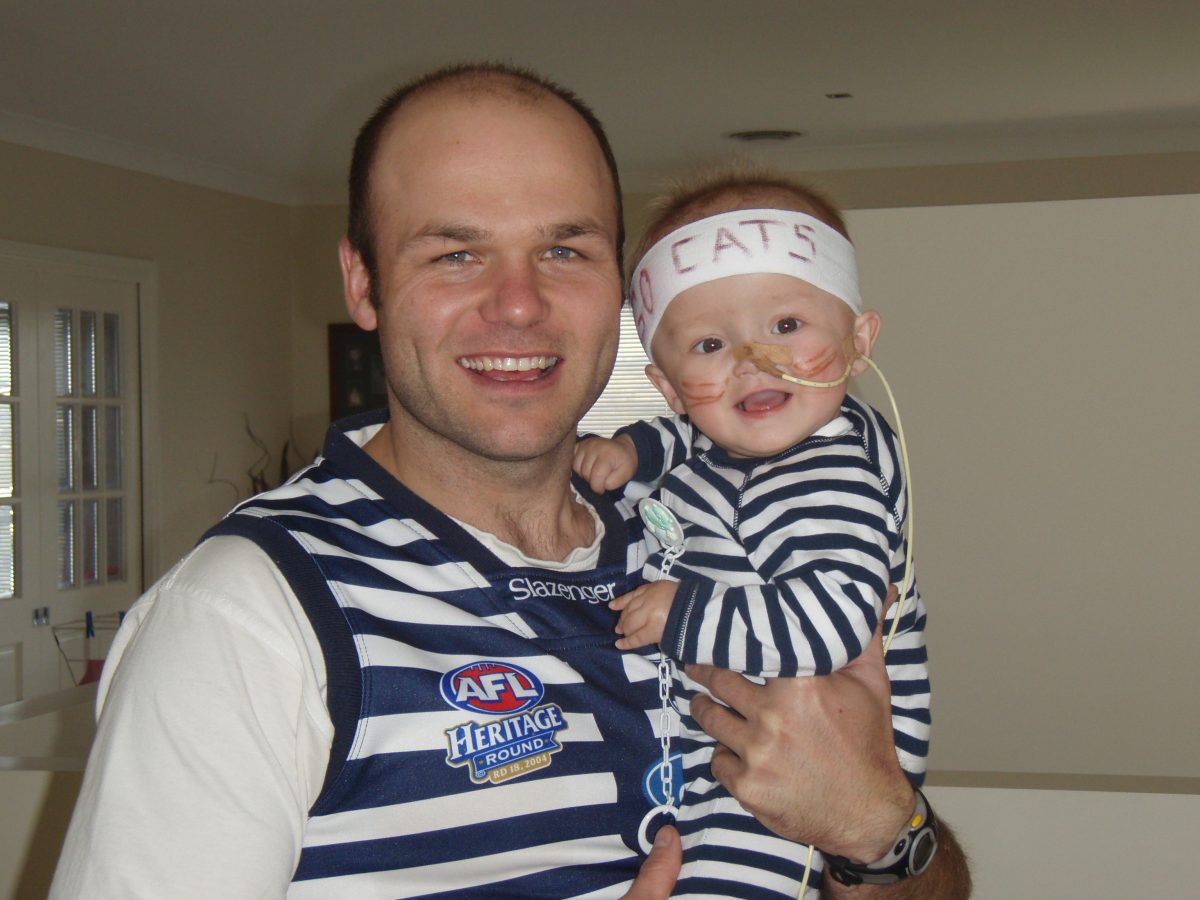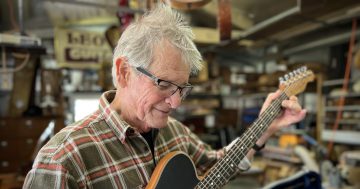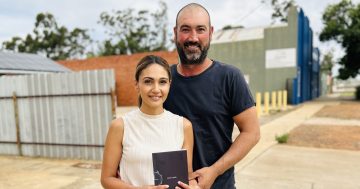
Ainsley (in pink) is celebrated in the book Ainsley de Jong Could Dance. Photos: Supplied.
In section 7 of the Wagga Wagga Lawn Cemetery lies a grave with a joint headstone, adorned with flowers, happy birthday messages and pictures of Mini Mouse and Mickey Mouse.
Under a photo of Ainsley de Jong are the words, ”KEEP ON DANCING BABY GIRL”. On her twin brother Archie’s side, under a drawing of an angel, it reads, ”SO SMALL, SO SWEET, SO SOON” in honour of a little boy who died in the final stages of the pregnancy.
Last week marked 17 years since the twins were born and 17 years since their parents Amanda and Aaron de Jong laid their son to rest.
This Christmas coming will be the family’s 10th without Ainsley.
On 17 October, 2014, her beautiful and spirited life was brought to an abrupt end.
The date also marks the tortured beginning of a family’s search for answers and dignity.
This year at least – at last – people are finally starting to hear about Ainsley de Jong.

Ainsley de Jong Could Dance. Photo: Supplied.
‘You can imagine the pride in Ainsley’s parents. It runs rich in their voices; it is written in their faces, glowing with delight at the memories of a remarkable daughter who became something of a celebrity for the way she took on cancer.
‘At the hospital in Wagga, and in Sydney, nurses would see her coming and yell her name out down the hallway,’ Aaron says. ‘She put everyone in a good mood.’
(Extract from Ainsley de Jong Could Dance, published by Hardie Grant)

“This little girl, who could wow the crowd at a Christmas concert or a family gathering, had honed her act in hospital wards.” – from Ainsley de Jong Could Dance.
Her autopsy report noted Ainsley had been picking flowers in the playground at lunchtime just before her death, sparked by a random and tragic sequence of events at school.
“We knew she was going to die one day but it wasn’t going to be then – she was going well. Things were happening, it was all going okay,” Aaron says.
People still think she died of brain cancer … ‘No! She was fighting that. She was a fighter. This is what happened.’ And people would say, ‘I didn’t hear about that.’ – Amanda de Jong
Aaron de Jong’s drive to give his daughter a voice never wavered. But what brought it to fruition in the form of a book was a combination of therapy, a global pandemic, and a good mate, Ryan Forsyth, who recognised a moment and seized it.
“When she died, I was one of the first people there, with the ambulance, and I got diagnosed with PTSD from the accident,” Aaron says.
“I was seeing a psychologist at the time and when COVID hit, I couldn’t see her … so I was just writing things on the notes app on my phone, at home, just wandering around.
“A mate of mine rang me one night and I told him. He said, ‘Send me what you’ve got’. I didn’t realise how much I’d done until he wrote it all out for me. It was a fair few pages and I sort of thought, ‘How about we start to turn this into a book?”’

“She was a fighter”: Amanda and Ainsley de Jong.
In early 2021, I agreed to help Aaron and Ryan in their bid to have the world hear the story of Ainsley, and the impact it had on those around her.
More than two years later, we arrived at the destination with the publication of a memoir, Ainsley de Jong Could Dance.
“It was really hard to write down the first time and I still haven’t read the book since it’s been finished. I’ve tried a few times but, yeah, it still feels weird to me when I try to read it,” Aaron says.
“But it’s helped me a fair bit, I think. It’s helped my family and it’s also helped people around us. Because people don’t know what to say to you … people would walk across the street and avoid me because they just didn’t want the awkward conversation.”

Aaron and Ainsley de Jong.
Ainsley de Jong Could Dance is a story about the value of a human life. It’s a story about learning that we must treat people as humans no matter what job we’re in; that no job or company or workplace is more important than the people who work in it or are served by it. It is also a story of hope, and the importance of human connection.
“We got a four- or five-hundred-copy deal to start off with with Hardie Grant and they sold in a week,” Aaron says of the initial print run of the hardcover book.
“We had things planned to promote it but we had to put that on the backburner and get another print run done. But we’ve got that now. It’s been good, just the feedback – there’s been lots of positive messages and things, which is pleasing.
“Seeing messages from people saying it resonated with them, or parts of it resonated with them, has made it feel worthwhile, for sure.”
*Peter Doherty is a co-author of Ainsley de Jong Could Dance. The book is available to order via a dedicated Facebook page, or through your local bookstore.










